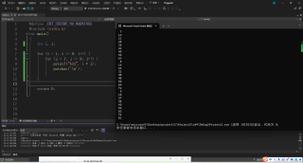Programming: Tips and Advice
Programming is a vast field with endless possibilities. Whether you are a beginner or an experienced developer, there are always new things to learn and improve upon. Here are some tips and advice to help you navigate the world of programming:
There are numerous programming languages out there, each with its own strengths and weaknesses. Before starting a new project, make sure to choose the right language for the job. Consider factors such as the project requirements, your familiarity with the language, and the community support available.
Like any skill, programming requires regular practice to master. Set aside time each day to work on coding challenges, personal projects, or simply to explore new concepts. The more you code, the better you will become.
Understanding data structures and algorithms is essential for writing efficient and scalable code. Take the time to study common data structures such as arrays, linked lists, trees, and graphs, as well as algorithms like sorting and searching.
Programming is often a collaborative effort. Working with other developers on projects can help you learn new techniques, gain different perspectives, and improve your communication skills. Consider joining coding communities, attending hackathons, or contributing to open-source projects.
The field of programming is constantly evolving, with new technologies and frameworks being introduced regularly. Stay updated with the latest trends by following tech blogs, attending conferences, and participating in online courses. Continuous learning is key to staying relevant in the industry.
Writing clean and readable code not only makes it easier for others to understand your work but also for you to maintain and debug it in the future. Follow best practices, use meaningful variable names, and comment your code to explain complex logic.
Testing is a crucial part of the development process. Write unit tests to ensure that each component of your code works as expected, and perform integration tests to check the interactions between different modules. Automated testing can help you catch bugs early and save time in the long run.
Don't be afraid to seek feedback on your code from peers, mentors, or online communities. Constructive criticism can help you identify areas for improvement and grow as a developer. Be open to suggestions and willing to learn from others.
Creating a portfolio of your projects is a great way to showcase your skills and experience to potential employers. Include a variety of projects that demonstrate your proficiency in different languages, technologies, and problem-solving abilities. A strong portfolio can set you apart in a competitive job market.
Above all, remember to have fun while programming. Explore new ideas, experiment with different technologies, and challenge yourself to think creatively. Enjoy the process of learning and building things with code.

By following these tips and advice, you can enhance your programming skills, stay motivated, and succeed in this dynamic and rewarding field.
